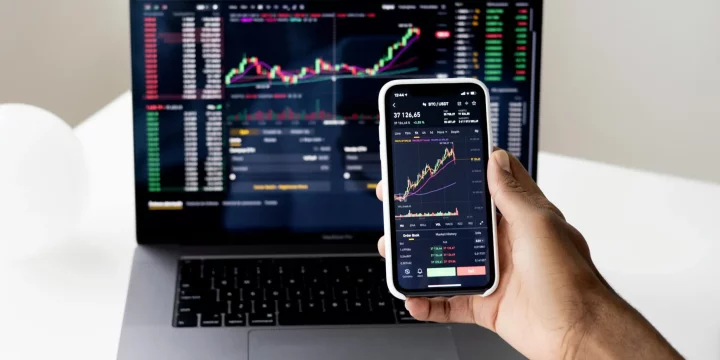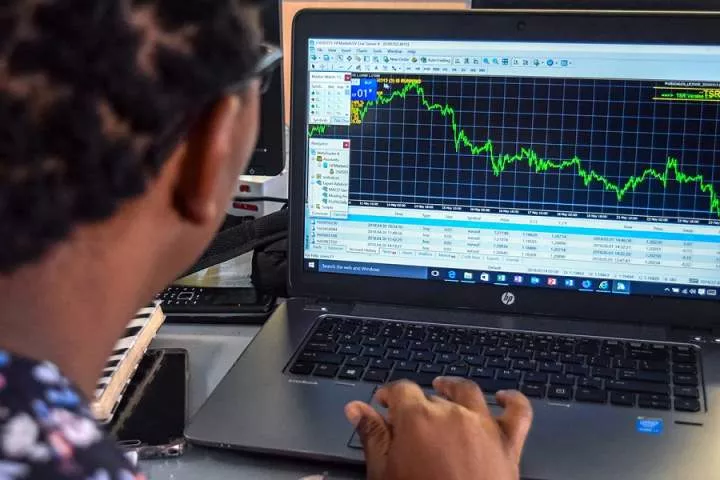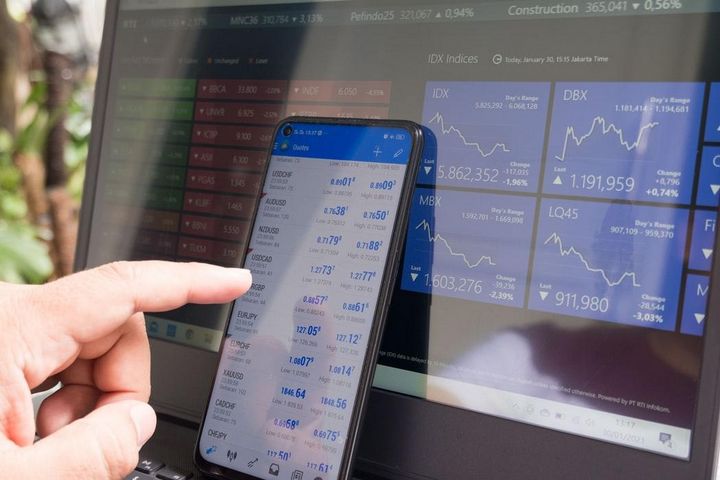The secret to making it big in online trading isn't speed, but risk management prowess. It's not a good idea for first-time traders to risk a lot of money all at once.

First venturing into the realm of online trading can feel quite difficult and overwhelming. There are charts, jargon language, and various figures flying around that you don't understand, and you're expected to earn money somewhere in the middle of it all.
But, however convoluted this might feel like, the whole process actually isn't too complicated and quick but thorough research can go a long way. With that in mind, let's go over the following tips that will help you get a handle on day trading.
Take Baby Steps but Dream Big
Do not assume that the experts began their careers with a yacht and a martini. The secret to making it big in online trading isn't speed, but risk management prowess. It's not a good idea for first-time traders to risk a lot of money all at once. To the contrary, it's best to get into things slowly so you can learn the ropes.
Statistically, around 77% of retail traders lose money in the markets when they're starting out. This sobering number should be enough to remind you to dip your toes in rather than cannonball in head first. As tempting as it may be to go all-in, scaling up slowly will allow you to learn without wiping out your bank account.
Educate Yourself
Do you feel that trading comes naturally to you? Perhaps you do, but even the most successful traders in the world devote a significant portion of their time to researching the market. A firm grasp of market mechanics is essential for every kind of analysis, whether fundamental or technical.
First things first - brush up on the fundamentals of trading, including liquidity, stop-loss orders, and leverage. When you're drowning in charts and trying to figure out what a "bullish divergence" is, trust me, it will save you a ton of trouble.
Maximize Your Gains With Demo Trading
It astounds me how many novice traders disregard this step. If you're new to online trading, demo trading is a good way to hone your skills as a novice. You may practice trading without putting any money on the line, which is great for learning the platform and getting a feel for the market. Picture yourself rehearsing your speech in front of a mirror the night before your major presentation. Surely you wouldn't wing it like that!
You can practice trading in a simulated environment with the right demo trading account. So, practice using your demo trading money until you're comfortable with the process before you risk any real cash. Unless you master this phase, you will have to learn difficult lessons the hard way, which can be expensive.
Expertly Handle Risk
Trading inevitably involves losing money, which no one enjoys. To succeed in the long run, you need to figure out how to deal with setbacks. Risk management tactics, such as placing stop-loss orders, become relevant in this context.
The 1% rule states that you should never put more than 1% of your trading account at risk in any one deal. So, even if the market suddenly turns against you, you will only have lost a little proportion and will still be able to trade.
Realize That Trading Does Not Come Without Expenses
Despite the convenience of being able to trade from the comfort of your couch, there are still expenses involved. Spreads, commissions, and overnight borrowing expenses are just a few examples of the many variables that must be considered. Get to know the pricing model of your trading software.
In such a situation, a PIP calculator might be useful. When trading foreign exchange, for instance, it is useful to estimate the gain or loss that could result from each one-pip change in the currency pair. You can trade wisely and avoid having your gains eaten away by hidden fees if you are aware of these costs.
Keep Your Emotions Out - This Is Not a Gambling Establishment
It's all too easy to let emotions guide your trading decisions. The market spikes? You get greedy. The market dips? Panic sets in. However, the successful trader knows that emotional trading is a one-way ticket to financial disaster.
Having a plan in place is quite helpful in this situation as a well-thought-out strategy makes it much easier to remain objective during the inevitable ups and downs. Keep in mind that trading isn't a quick way to become wealthy. Making thoughtful choices and being patient are key. The stock market is a means by which the impatient can have their money transferred to the patient, as famously said by Warren Buffett.
Wrapping it all up
The path to become a prosperous online trader is not an easy one. Having patience, along with a lot of learning and planning, is crucial. Staying in the game for the long term is significantly more likely if you start small, get educated, practice with demo trading, and keep your emotions in check. Stay one step ahead of the game by always managing your risks and being mindful of the costs with the right tools and data.
Trading requires patience and persistence. If you follow these seven guidelines, you should have no trouble transforming the market's untamed beast into your next great opportunity.

















Comments